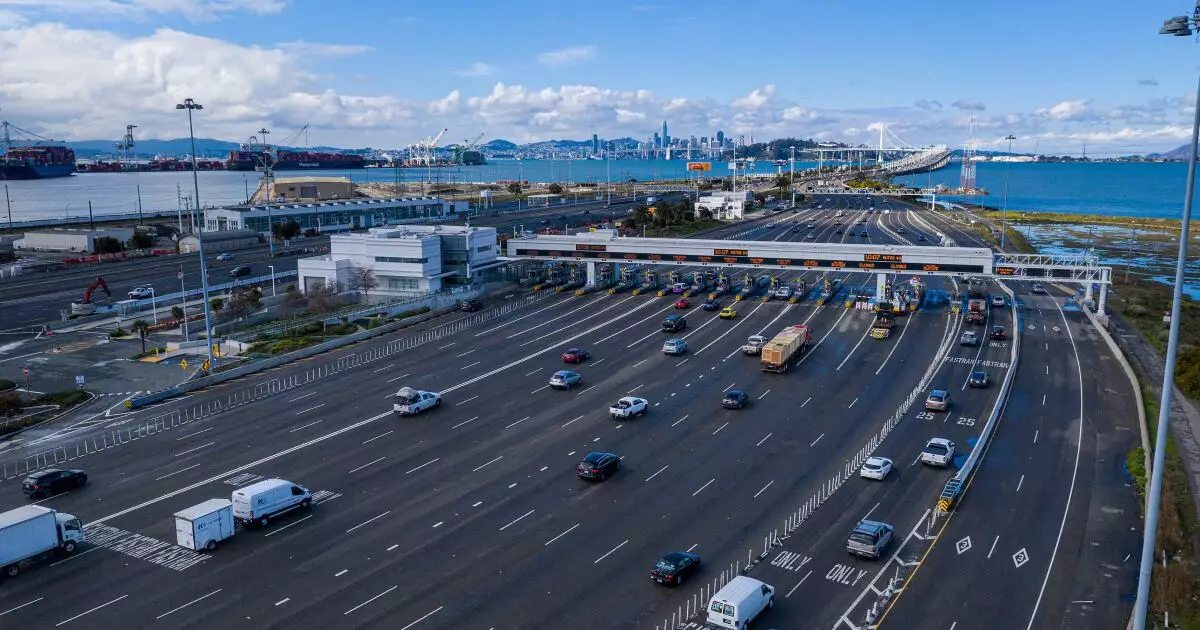This year has marked a significant turning point in how states approach transportation funding, with approximately two-thirds of them proposing innovative and often controversial new measures. Among the most notable developments is Indiana’s legislative decision to introduce tolling on all interstate highways. This bold move, endorsed by the Indiana General Assembly, represents a stark reaction to the waning efficacy of the gas tax—a tax by which most drivers are unhappy to see, especially with the rollout of electric and fuel-efficient vehicles. As a center-right commentator, I advocate for user-based funding solutions like tolls, which place the financial responsibility squarely on those who utilize the roads. This approach guarantees that funding matches usage, helping to preserve and maintain essential infrastructure without burdening taxpayers who seldom use those roads.
The necessity for such measures has appeared ever more pressing, especially as numerous states scramble to address the stagnating revenue that the traditional gas tax has provided. The American Road and Transportation Builders Association (ARTBA) reports that 37 states have collectively pitched 130 transportation funding bills in just the first quarter of the year. An impressive 25% of these proposals aim for recurring revenue through new fees and taxes—a testament to the shifting focus towards long-term sustainability rather than temporary fixes. The innovative solutions being explored stand as a reflective mirror to the political climate of today, where pressing infrastructure needs cannot wait.
The Electric Vehicle Dilemma
Among the many bills introduced, 14% target electric vehicle (EV) fees, acknowledging a radical transformation in vehicle technology and transportation modes. The reality that electric vehicles contribute minimally to road maintenance funds, which are predominantly derived from gasoline taxes, poses a real concern for future infrastructure financing. I believe it is crucial to explore this untapped revenue potential, and Congress’s contemplation of a national EV fee echoes this sentiment. However, it must be executed carefully; unreasonably high fees may further deter the shift towards cleaner energy solutions, which ultimately benefit society.
The Fair Share Act, proposed by Republican lawmakers, seeks to impose a tax on EVs and contribute to the Highway Trust Fund, recognizing that evolving vehicle technologies should come with accompanying changes in funding strategies. Those who favor traditional gas taxes may see these proposals as burdensome, but they do reflect a pragmatic approach to a future that increasingly relies on alternative energy sources. In a pragmatic political climate where infrastructural deficits are glaring, such measures are not only rational but necessary.
State-Specific Innovations: A Patchwork of Solutions
Each state is grappling with its unique challenges and solutions in this transportation funding landscape. For example, Indiana’s bold venture into tolling is projected to generate about $38.2 billion in revenue between 2029 and 2050—a substantial sum that underscores the potential for user-based funding models. It’s a significant contrast to other legislative efforts, such as Maryland, which recently passed measures to generate approximately $500 million in new transportation revenue through various taxes and fees.
In North Carolina, local governments are empowering themselves to issue bonds against projected revenues, which encourages local ownership of infrastructure funding. Virginia’s government, under Republican leadership, is pushing towards significant revenue bonds for transportation projects, a clear indication that innovative financing, including public-private partnerships, has potential benefits worth exploring.
Lesser-known yet impactful proposals are also under consideration in various states. Massachusetts is pushing for an increased budget for municipal road improvements that embrace local needs. There is much to be said for localized decision-making in a diverse country—what works for a rural community may not work for an urban center, and vice versa.
Implications for the Future of Transportation Funding
As legislators across the political spectrum confront the realities of underfunded transportation systems, the ideas being floated could lead to transformative change. The pivot towards understanding the necessity of user fees and local support could reshape how the public views their accountability for infrastructure maintenance.
As a proponent of center-right ideologies, I find it compelling that a plethora of state-run initiatives are seeking avenues for better financial responsibility. Revenue generation mechanisms must be as diverse as the constituents they serve, and reliance solely on traditional funding sources does no longer suffice in addressing our growing infrastructure needs.
In the overarching narrative, one thing is clear: the days of complacency are over, and those fighting for better funding models should not shy away from exploring bold, innovative solutions that resonate with the idea of shared responsibility among users of the system.

